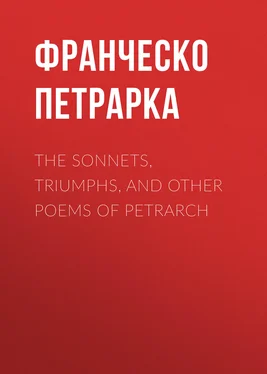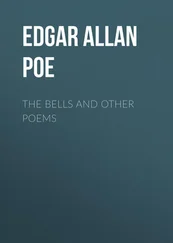Франческо Петрарка - The Sonnets, Triumphs, and Other Poems of Petrarch
Здесь есть возможность читать онлайн «Франческо Петрарка - The Sonnets, Triumphs, and Other Poems of Petrarch» — ознакомительный отрывок электронной книги совершенно бесплатно, а после прочтения отрывка купить полную версию. В некоторых случаях можно слушать аудио, скачать через торрент в формате fb2 и присутствует краткое содержание. Жанр: foreign_poetry, Поэзия, foreign_antique, foreign_prose, на английском языке. Описание произведения, (предисловие) а так же отзывы посетителей доступны на портале библиотеки ЛибКат.
- Название:The Sonnets, Triumphs, and Other Poems of Petrarch
- Автор:
- Жанр:
- Год:неизвестен
- ISBN:нет данных
- Рейтинг книги:5 / 5. Голосов: 1
-
Избранное:Добавить в избранное
- Отзывы:
-
Ваша оценка:
- 100
- 1
- 2
- 3
- 4
- 5
The Sonnets, Triumphs, and Other Poems of Petrarch: краткое содержание, описание и аннотация
Предлагаем к чтению аннотацию, описание, краткое содержание или предисловие (зависит от того, что написал сам автор книги «The Sonnets, Triumphs, and Other Poems of Petrarch»). Если вы не нашли необходимую информацию о книге — напишите в комментариях, мы постараемся отыскать её.
The Sonnets, Triumphs, and Other Poems of Petrarch — читать онлайн ознакомительный отрывок
Ниже представлен текст книги, разбитый по страницам. Система сохранения места последней прочитанной страницы, позволяет с удобством читать онлайн бесплатно книгу «The Sonnets, Triumphs, and Other Poems of Petrarch», без необходимости каждый раз заново искать на чём Вы остановились. Поставьте закладку, и сможете в любой момент перейти на страницу, на которой закончили чтение.
Интервал:
Закладка:
A few days after writing this letter, as the Cardinal of Boulogne had not kept his word about returning to Avignon, and as he heard no news of him, Petrarch determined to set out for Italy. He accordingly started on the 16th of November, 1352; but scarcely had he left his own house, with all his papers, when he was overtaken by heavy falls of rain. At first he thought of going back immediately; but he changed his purpose, and proceeded as far as Cavaillon, which is two leagues from Vaucluse, in order to take leave of his friend, the Bishop of Cabassole. His good friend was very unwell, but received him with joy, and pressed him to pass the night under his roof. That night and all the next day it rained so heavily that Petrarch, more from fear of his books and papers being damaged than from anxiety about his own health, gave up his Italian journey for the present, and, returning to Vaucluse, spent there the rest of November and the whole of December, 1352.
Early in December, Petrarch heard of the death of Clement VI., and this event gave him occasion for more epistles, both against the Roman court and his enemies, the physicians. Clement's death was ascribed to different causes. Petrarch, of course, imputed it to his doctors. Villani's opinion is the most probable, that he died of a protracted fever. He was buried with great pomp in the church of Nôtre Dame at Avignon; but his remains, after some time, were removed to the abbey of Chaise Dieu, in Auvergne, where his tomb was violated by the Huguenots in 1562. Scandal says that they made a football of his head, and that the Marquis de Courton afterwards converted his skull into a drinking-cup.
It need not surprise us that his Holiness never stood high in the good graces of Petrarch. He was a Limousin, who never loved Italy go much as Gascony, and, in place of re-establishing the holy seat at Rome, he completed the building of the papal palace at Avignon, which his predecessor had begun. These were faults that eclipsed all the good qualities of Clement VI. in the eyes of Petrarch, and, in the sixth of his eclogues, the poet has drawn the character of Clement in odious colours, and, with equal freedom, has described most of the cardinals of his court. Whether there was perfect consistency between this hatred to the Pope and his thinking, as he certainly did for a time, of becoming his secretary, may admit of a doubt. I am not, however, disposed to deny some allowance to Petrarch for his dislike of Clement, who was a voluptuary in private life, and a corrupted ruler of the Church.
Early in May, 1353, Petrarch departed for Italy, and we find him very soon afterwards at the palace of John Visconti of Milan, whom he used to call the greatest man in Italy. This prince, uniting the sacerdotal with the civil power, reigned absolute in Milan. He was master of Lombardy, and made all Italy tremble at his hostility. Yet, in spite of his despotism, John Visconti was a lover of letters, and fond of having literary men at his court. He exercised a cunning influence over our poet, and detained him. Petrarch, knowing that Milan was a troubled city and a stormy court, told the Prince that, being a priest, his vocation did not permit him to live in a princely court, and in the midst of arms. "For that matter," replied the Archbishop, "I am myself an ecclesiastic; I wish to press no employment upon you, but only to request you to remain as an ornament of my court." Petrarch, taken by surprise, had not fortitude to resist his importunities. All that he bargained for was, that he should have a habitation sufficiently distant from the city, and that he should not be obliged to make any change in his ordinary mode of living. The Archbishop was too happy to possess him on these terms.
Petrarch, accordingly, took up his habitation in the western part of the city, near the Vercellina gate, and the church of St. Ambrosio. His house was flanked with two towers, stood behind the city wall, and looked out upon a rich and beautiful country, as far as the Alps, the tops of which, although it was summer, were still covered with snow. Great was the joy of Petrarch when he found himself in a house near the church of that Saint Ambrosio, for whom he had always cherished a peculiar reverence. He himself tells us that he never entered that temple without experiencing rekindled devotion. He visited the statue of the saint, which was niched in one of the walls, and the stone figure seemed to him to breathe, such was the majesty and tranquillity of the sculpture. Near the church arose the chapel, where St. Augustin, after his victory over his refractory passions, was bathed in the sacred fountain of St. Ambrosio, and absolved from penance for his past life.
All this time, whilst Petrarch was so well pleased with his new abode, his friends were astonished, and even grieved, at his fixing himself at Milan. At Avignon, Socrates, Guido Settimo, and the Bishop of Cavaillon, said among themselves, "What! this proud republican, who breathed nothing but independence, who scorned an office in the papal court as a gilded yoke, has gone and thrown himself into the chains of the tyrant of Italy; this misanthrope, who delighted only in the silence of fields, and perpetually praised a secluded life, now inhabits the most bustling of cities!" At Florence, his friends entertained the same sentiments, and wrote to him reproachfully on the subject. "I would wish to be silent," says Boccaccio, "but I cannot hold my peace. My reverence for you would incline me to hold silence, but my indignation obliges me to speak out. How has Silvanus acted?" (Under the name of Silvanus he couches that of Petrarch, in allusion to his love of rural retirement.) "He has forgotten his dignity; he has forgotten all the language he used to hold respecting the state of Italy, his hatred of the Archbishop, and his love of liberty; and he would imprison the Muses in that court. To whom can we now give our faith, when Silvanus, who formerly pronounced the Visconti a cruel tyrant, has now bowed himself to the yoke which he once so boldly condemned? How has the Visconti obtained this truckling, which neither King Robert, nor the Pope, nor the Emperor, could ever obtain? You will say, perhaps, that you have been ill-used by your fellow-citizens, who have withheld from you your paternal property. I disapprove not your just indignation; but Heaven forbid I should believe that, righteously and honestly, any injury, from whomsoever we may receive it, can justify our taking part against our country. It is in vain for you to allege that you have not incited him to war against our country, nor lent him either your arm or advice. How can you be happy with him, whilst you are hearing of the ruins, the conflagrations, the imprisonments, the deaths, and the rapines, that he spreads around him?"
Petrarch's answers to these and other reproaches which his friends sent to him were cold, vague, and unsatisfactory. He denied that he had sacrificed his liberty; and told Boccaccio that, after all, it was less humiliating to be subservient to a single tyrant than to be, as he, Boccaccio, was, subservient to a whole tyrannical people. This was an unwise, implied confession on the part of Petrarch that he was the slave of Visconti. Sismondi may be rather harsh in pronouncing Petrarch to have been all his life a Troubadour; but there is something in his friendship with the Lord of Milan that palliates the accusation. In spite of this severe letter from Boccaccio, it is strange, and yet, methinks, honourable to both, that their friendship was never broken.
Levati, in his " Viaggi di Petrarca ," ascribes the poet's settlement at Milan to his desire of accumulating a little money, not for himself, but for his natural children; and in some of Petrarch's letters, subsequent to this period, there are allusions to his own circumstances which give countenance to this suspicion.
Читать дальшеИнтервал:
Закладка:
Похожие книги на «The Sonnets, Triumphs, and Other Poems of Petrarch»
Представляем Вашему вниманию похожие книги на «The Sonnets, Triumphs, and Other Poems of Petrarch» списком для выбора. Мы отобрали схожую по названию и смыслу литературу в надежде предоставить читателям больше вариантов отыскать новые, интересные, ещё непрочитанные произведения.
Обсуждение, отзывы о книге «The Sonnets, Triumphs, and Other Poems of Petrarch» и просто собственные мнения читателей. Оставьте ваши комментарии, напишите, что Вы думаете о произведении, его смысле или главных героях. Укажите что конкретно понравилось, а что нет, и почему Вы так считаете.












